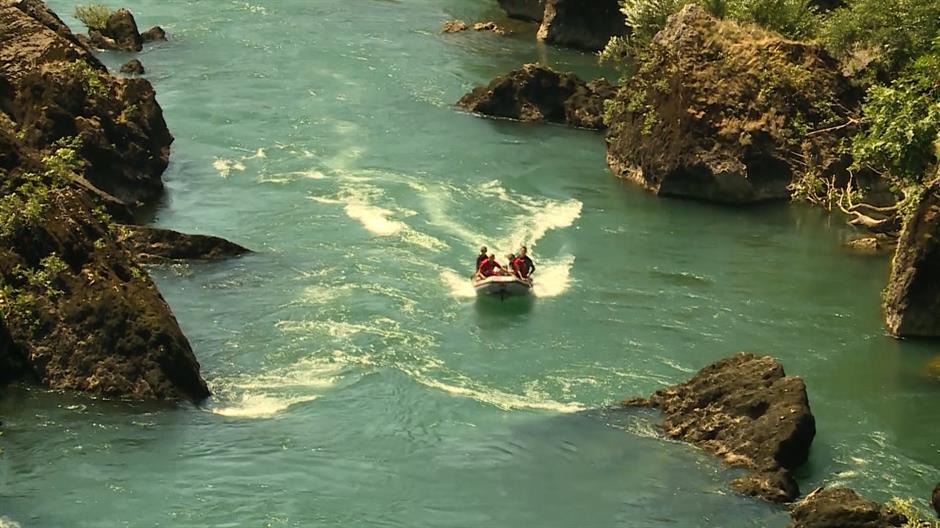Republika Srpska government embarks on harmful energy project with Chinese

Bosnia's Republika Srpska (RS) entity government has signed a contract with a Chinese investor for the construction of another hydro-electricity plant on the Trebisnjica River in eastern Herzegovina despite the fact that the project is an ecological hazard that could seriously threaten the Neretva River.
Oglas
Local media in the majority Serb entity reported on Tuesday that the government has adopted a decision under which RS would guarantee a €190 million loan from the Export-Import Bank of China for the 159-megawatt Dabar power plant.
The Chinese loan would cover 60% of the cost of construction while the rest would be provided by the Hidroelektrane na Trebišnjici (HET) power company.
The China Energy Gezhouba Group is expected to carry out the work based on a contract signed with the RS government in 2020.
The Dabar plant is part of the Gornji Horizonti project which foresees redirecting the waters from the Gatničko and Nevesinje fields through the Dabar and Fatničko fields into Lake Bileća.
The entire project, which was planned during the Yugoslav era, is disputed because redirecting the natural waterways would reduce the water flow into the Neretva River which passes through Croatia and is already receiving too much seawater from the Adriatic, threatening the survival of flora and fauna in the area as well as farming activities that depend on the river.
Redirecting the natural waterways would also directly affect the water levels of the Buna, Bunica and Bregava rivers which are vital tributaries to the Neretva River in its lower reaches.
Before the disintegration of Yugoslavia, the Trebinje I, Trebinje II, Capljina and Plat power plants were built as part of the Gornji Horizonti project. Trebinje I and Trebinje II are now part of the RS electricity provider Elektroprivreda while the Capljina power plant is operated by the Herceg Bosna electricity provider in the Federation (FBiH) entity. Plat is part of Croatia's electricity network (HEP).
Kakvo je tvoje mišljenje o ovome?
Učestvuj u diskusiji ili pročitaj komentare
Oglas
Kakvo je tvoje mišljenje o ovome?
Učestvuj u diskusiji ili pročitaj komentare
Oglas





 Srbija
Srbija
 Hrvatska
Hrvatska
 Slovenija
Slovenija



























































